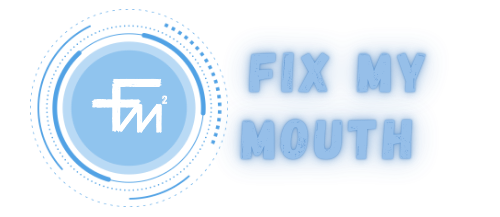So you recently have had your teeth extracted (teeth pulled out) or any of your loved ones got their teeth pulled out? Now you are wondering what you should do and what you should avoid after this dental procedure.
Tooth extraction is a common dental procedure that many people undergo to resolve issues such as tooth decay, infection, or overcrowding. However, the recovery period is crucial to ensure proper healing and avoid complications. Understanding what to expect and knowing the things to avoid after tooth extraction can significantly enhance your recovery process. In this article, we will discuss essential tips and guidelines to follow post-extraction so that you may know about things to avoid after tooth extraction so that you can recover smoothly and prevent any potential setbacks.
Table of Contents
When to start avoiding things after extraction?
You should strictly follow the dentists’ prescription and instructions that he gives after the dental procedure. These instructions should be followed immediately after getting the extraction and one should not wait for the effect of anesthesia to wear off before they start following the instructions.
If you do not follow the dentists’ instructions and don’t avoid things after extraction about which you are told to do so, you might need to visit the dentist again, this time placing an even more budget on your pocket.
Why avoiding things after tooth extraction is important?

Dental extraction is a medical procedure which involves diagnosis, treatment planning and the procedure, which is at times a complex one. Just like all medical procedures, after a tooth extraction, to ensure proper healing and avoid complications, it is important to avoid certain things after tooth extraction. Here are the main reasons for these precautions:
- Preventing Dry Socket: One of the most important reasons is to prevent a condition called dry socket. This occurs when the blood clot that forms in the extraction site is dislodged or dissolves before the wound has healed. The blood clot is essential for protecting the bone and nerve endings in the empty tooth socket. Without it, the bone and nerves are exposed, which can cause severe pain and delay healing.
- Avoiding Infection: The extraction site is vulnerable to infection. Certain foods and activities can introduce bacteria into the wound. It’s important to maintain good oral hygiene and avoid anything that might contaminate the area.
- Minimizing Swelling and Bleeding: Activities that increase blood pressure or involve suction (like smoking or drinking through a straw) can increase bleeding and swelling. These activities can also dislodge the blood clot, leading to dry socket.
- Ensuring Comfort and Reducing Pain: Hard, crunchy, or spicy foods can irritate the extraction site, causing discomfort and pain. Sticking to soft foods and avoiding certain foods helps keep the area comfortable and allows it to heal more quickly.
Top Things to Avoid After Tooth Extraction
Here is a list of all the things you should avoid after getting a tooth extraction:
1. Smoking and Tobacco products:

Smoking and tobacco products contain nicotine, which is a vasoconstrictor. This vasoconstrictor can constrict the blood vessels, leading to less blood flowing towards the extraction area. Less blood flowing towards the extraction area will cause blood clot to form very slowly, ultimately delaying the healing time. This is why you are advised to not smoke at least for some time after getting an extraction.
2. Using Straws:

How straws work is that when we suck from the straw, it creates pressure changes between one side of straw i.e. our mouth and the other side of straw i.e. the glass. This pressure change then brings the liquid into our mouth. But this pressure change is dangerous for a healing socket as this may dislodge the clot, leading to delayed healing.
3. Hard and Crunchy Foods:

Soft diet is recommended after an extraction because hard diet may damage the wound, the place which was previously covered by sound teeth.
4. Vigorous Physical Activity:

The more physical activity you perform, greater is the increase in your blood pressure. This increased blood pressure also drives more blood towards the arteries of your mouth, leading to clot dislodgement and delayed healing.
5. Hot Beverages and Foods:

Dentists often recommend using food and beverages after they have been cooled down to room temperature or below it. The reason for this is that the increased temperature of hot foods and beverages can increase the blood flow. Just like in vigorous physical activity, this increased blood flow can disrupt the clot and may lead to the wound bleeding again.
6. Touching the Extraction Site:
It is natural to touch the extraction site with your tongue, but it should be avoided. Not only with your tongue but with anything, for at least the first 3-4 days. The reason for this is that it will again disrupt the clot, and will cause delayed healing.
7. Alcohol Consumption:

Alcohol can cause dehydration in your body. This is the reason that it is advised not to drink alcohol for the first 7-10 days following an extraction. Using alcohol after tooth extraction can even cause an infection!
8. Spitting With Force:
It is a common practice to spit forcefully and swish water in your mouth. These practices should be avoided initially because these also can dislodge the clot, and lead to delayed healing.
9. Blowing From Nose:

Blowing from nose, just like in sneezing, creates negative pressure inside the mouth. Similar to sucking from straws, this negative pressure is the reason for clot dislodgement and delayed healing.
The Importance of Avoiding Things After Tooth Extraction
Following post-extraction instructions is essential for a recovery free of complications. Knowing the things to avoid after tooth extraction can prevent common issues such as dry socket, infection, and prolonged healing times. For example, avoiding activities like smoking or using straws is very important, as these can dislodge the blood clot formed at the extraction site, leading to severe complication like dry socket or improper and delayed healing. By being mindful of these precautions, you can ensure that your mouth heals properly and avoid unnecessary discomfort or additional dental procedures.
Ignoring the recommended things to avoid after tooth extraction can result in serious consequences. Consuming hard or crunchy foods can irritate the extraction site and can even dislodge the already formed blood clot, causing pain and delaying the healing process. Similarly, engaging in vigorous physical activity soon after extraction can increase blood flow to the area, leading to excessive bleeding and swelling, which can ultimately lead to tooth infection. By strictly following your dentist’s advice and avoiding these activities, you create an optimal environment in your mouth for healing and reduce the risk of post-extraction complications.
Additionally, it is vital to avoid hot beverages and foods after tooth extraction. The heat can dissolve the blood clot at the extraction site, and can also increase the blood flow to that area, potentially leading to a dry socket, a painful condition that requires additional treatment and also an additional amount of money. Alcohol consumption should also be avoided, as it can interfere with any prescribed medications by a process known as “alcohol reactions”, and can slow down the healing process. Understanding and adhering to these things to avoid after tooth extraction will significantly enhance your recovery and ensure that you return to normal activities as quickly as possible.
FAQs about “Things to Avoid After Tooth Extraction”
Q1. Can I use a straw after tooth extraction?
It is best to avoid the use of straws after tooth extraction. The reason for this has already been explained above. Instead of using straws, you should drink directly from the cup/glass but that too after it has been cooled down.
Q2. How long should I wait to eat after tooth extraction?
Immediately after tooth extraction, you should eat an ice cream after the effect of anesthesia wears off. This is so that temperature of mouth is lowered, you feel less pain and healing process can speed up. For the first 24 hours after an extraction, stick to soft and cool foods and try to avoid anything which is hard.
Q3. Is it normal to experience pain after tooth extraction?
During the extraction procedure, anesthesia is injected because extraction is a painful procedure. So, after the effect of anesthesia wears off, it is quite normal to experience a mild degree of pain. Click here to see how to deal with tooth pain in only 3 seconds!
Eating Instructions After Tooth Extraction
Now that you know about the things to avoid after tooth extraction. You should also learn about the things to eat after tooth extraction.




